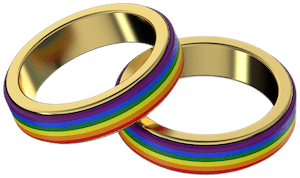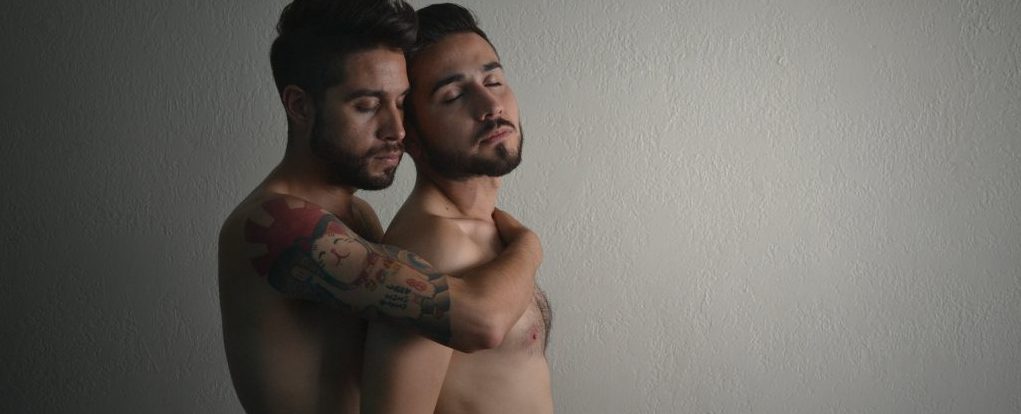Contents
The First Session
There is an important question I ask of Gay Couples.
As a counsellor, over my 25 years in practice I began to specialise in therapies for lesbian, gay and mixed-sexuality couples around 16 years ago.
During the initial interview session, I recognised a common struggle amongst gay male partners. I developed an important question for the couple to begin to recognise this:
“What makes this relationship distinctly yours…?”
(Disappointed? Expected something shocking or surprising from the blogpost title? Let me explain my rationale…)
This is a deceptively difficult question to answer (if the individual partners attempt to answer it alone). The question is deliberately constructed to:-
(a) give the couple an example of what it may be like to work in counselling with me,
(b) provoke thoughtful conversation between the couple (as it’s a question that their relationship may answer better together than the individuals alone), and
(c) reveal how the relationship’s framework has been constructed.
For some gay couples, this will also be the first time that they have been invited to think about such a concept: “how do we define this as being our relationship, distinct from others” (which is as applicable to polyamorous relationships as to a single couple).
Plus, variations of this question may include:
“What do you do to help others recognise that this relationship is distinctly yours?” or
“How does your partner help identify this relationship as being distinct from all others in his/her life?” if we’re going for a circular approach to the question).
So what’s going on with this question?
A Purposeful Question
The purpose of my question is to invite a gay couple to begin stretching their thinking and communication processes (a skill that will be made us of during couple counselling). A question such as this (systemic therapists term this “circular questioning“) is answered more successfully with couple communicating with each other, rather than one partner answering alone.
Defining what aspects of this couple’s relationship that distinguishes it from anyone elses may be a significant task. One portion of an answer might include: does this couple’s relationship have distinct boundaries that separate it from others (eg can either partner engage in sex with someone outside of the relationship and has this process been agreed upon). Do the couple agree upon and respect these boundaries?
I’m also inviting the partners within the couple relationship communicate. Does each partner know how the other regards their relationship? Does their partner regard answers to the question as the same, similar to their partner or different from?.
Before Law Recognised our Relationship
Gay couples have not had a society-wide recognised union or ritual (e.g. marriage) until relatively recently (last ten years). Historically, gay couples recognised a strong compulsion to hide their relationship from the public. Gay couples would repress their feelings in public, unlike heterosexual couples who were free to display theirs.
Today’s LGBT/QIA+ couples can exist in public (at least to some extent, and in some countries) but years of repressed behaviour doesn’t suddenly vanish. A couple can still struggle with how natural feelings may still be censored.
A gay couple had to create their own form of recognisable union; something that communicates “this is our relationship!” and which is communicated to, and is recognised by their family, friends, work-colleagues and so on.
Just as importantly, this self-defined union would be one that is to be recognised by other potentially-interested sexual partners (e.g. when the gay couple socialise in public, within an environment of others who may nor recognise the union or who wish to attack it (eg engaging sexually with one partner)). Does the couple communicate (on many levels): “our relationship exists; thou shalt not come between us”?
Perhaps just as importantly, is this couple’s union something that the couple themselves recognise as being distinct from everyone else’s?
If the couple are having trouble recognising or respecting the boundaries of their own relationship, this may be an important factor of the relationship’s conflicts – and maybe at the core of why the couple have come into counselling.
Couple Therapy with Gay Men
David E. Greenan and Gil Tunnell, from their book “Couple Therapy with Gay Men“ (2002 – The Guilford Family Therapy), put it like this:-
“If procreation & monogamy do not establish what is and is not a couple relationship, then the gay couple must establish another set of rules…”
(emphasis added)
In my experience as an LGBT/QIA+ couple counsellor, taking such an approach to relationship-distinctiveness can apply helpfully to all queer relationships.
When a gay couple meet for couple counselling, one of the things I try to learn, as their counsellor, is: how does this couple decide that they’re a couple… and a couple that may, or may not, choose to exclude others from their relationship (recognising polyamorism, open relationships, affairs etc.).
Reflecting on my Question in 2021
As civil-partnerships and equal-marriage have been introduced into the UK over the past years, I’ve been considering if my question is still valid.
If the couple are married, for example, does that marriage not already establish that this is a distinct couple relationship?
Yet, couples coming into counselling continue to teach me that even formal unions are not always an automatic distinction for their relationship… and sometimes such formal unions can be a distraction from what’s really going on in the relationship.
- The Story the Couple Tell: “We’re married, hence committed to each other”.
- The Story the Couple Live: “We’re married, but I don’t know where he goes every Thursday night”.
Theoretical Approach to Couple Counselling
Regardless of sexuality or gender of the couple, in systemic / psychodynamic couple counselling the counsellor’s initial role is to be educated by the couple:
- how the couple’s behaviour “system” is established (where do conflicts begin?),
- what does the system do (who does what in response to whom … and what are subsequent responses?),and
- how the system can lead to the relationship going wrong.
As the couple teach the counsellor, they too are learning what happens in their relationship’s “system”.
Through the counselling process, the couple can begin to review how they might recognise what leads towards their conflicts and then, together, may begin to introduce inspired ideas of how they might alter such behaviour (“instead if me yelling, perhaps I might say I’m going to step outside for 5 minutes, then come back to talk”).
Gay Couple Counselling is not just Couple Counselling
Incorporating knowledge of the more distinct aspects and needs of gay couples can greatly assist the gay couple to feel that their relationship is recognised by the couple counsellor, respected by the counsellor, and that their distinct (if “distinct” is definable) relationship will be assisted through the couple counselling process.
In the end, perhaps my question still holds a place of importance during the opening sessions when a gay couple come into counselling.
“]Click to read more about Dean Richardson MNCPS (Accred/Reg)…










0 Comments